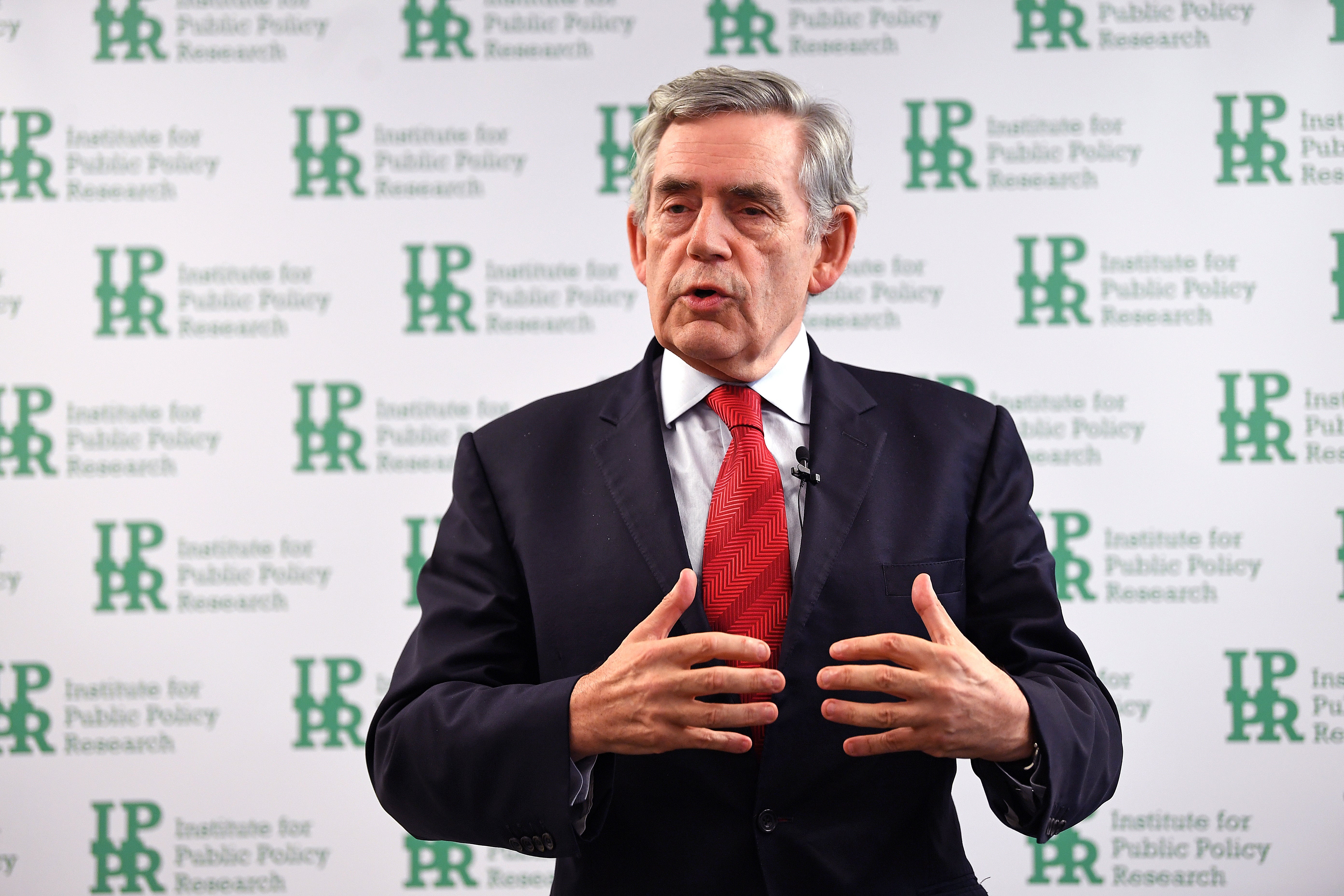Gordon Brown: Failing to halt Afghanistan humanitarian crisis will haunt West
The former prime minister said the West risked ‘sleepwalking into the biggest humanitarian crisis of our times’.

Your support helps us to tell the story
From reproductive rights to climate change to Big Tech, The Independent is on the ground when the story is developing. Whether it's investigating the financials of Elon Musk's pro-Trump PAC or producing our latest documentary, 'The A Word', which shines a light on the American women fighting for reproductive rights, we know how important it is to parse out the facts from the messaging.
At such a critical moment in US history, we need reporters on the ground. Your donation allows us to keep sending journalists to speak to both sides of the story.
The Independent is trusted by Americans across the entire political spectrum. And unlike many other quality news outlets, we choose not to lock Americans out of our reporting and analysis with paywalls. We believe quality journalism should be available to everyone, paid for by those who can afford it.
Your support makes all the difference.Failing to act to address the humanitarian crisis in Afghanistan will “come back to haunt us”, former prime minister Gordon Brown has warned.
Mr Brown called for a multibillion-pound support package to save the country from economic and social collapse following the Taliban takeover and the withdrawal of the US-led coalition in August.
Not responding to the situation could result in mass emigration from Afghanistan and resentment against the West, “so we have got to act for moral reasons but also it is in our self-interest to do so”, the former Labour leader said.
We will have the horror of practically an entire country living in absolute poverty
The West is “sleepwalking into the the biggest humanitarian crisis of our times”, Mr Brown claimed.
Writing for The Times Red Box, the former prime minister called on the global community to commit to the “largest humanitarian response ever agreed for a single nation”.
Mr Brown said more than half of the Afghan population is facing extreme hunger, including a million children who are at risk of starving to death.
He pointed to UN and International Monetary Fund predictions that the Afghanistan economy will contract by 20 to 30% over the next year – a figure he dubbed “unprecedented”.
“No country in recent times is suffering from such ‘universal poverty’ in the way that Afghanistan may do,” Mr Brown said.
“It is ironic that when the whole international community is pledged to achieve the Sustainable Development Goals — to free all the world from absolute poverty this decade — almost every citizen of Afghanistan will be condemned to that dire fate.
“Instead of no absolute poverty in any country, we will have the horror of practically an entire country living in absolute poverty.”
Mr Brown said the effects of Afghanistan’s poverty crisis could be felt as far away as Europe as thousands of Afghans are faced with the choice of starvation or emigration.
He called on global support for a 4.5 billion dollar (£3.3 billion) plan from the UN Office for Co-ordination of Humanitarian Affairs, which would provide assistance to 22 million of the most vulnerable Afghans.
Mr Brown said: “It cost America trillions to fight the war in Afghanistan. It is not beyond our capacity to find four billion dollars to prevent starvation amid this uneasy peace.
“This tragedy foretold cannot be a tragedy unresolved.”
On BBC Radio 4’s Today programme, Mr Brown said the retreat from Afghanistan – which saw US and UK forces carry out a frantic evacuation effort from Kabul – marked the end of the idea that the allies could “impose liberal Western values overnight” in countries around the world.
But he said it must not lead to isolationist policies: “What it cannot do is remove the obligation on each of us to understand that we are in an integrated and interconnected world where we are all affected by decisions that are made in other countries and we have got to do something to help those, particularly those who face starvation.
“Otherwise, not just for moral reasons but for self-interested reasons, this will come back to haunt us.”